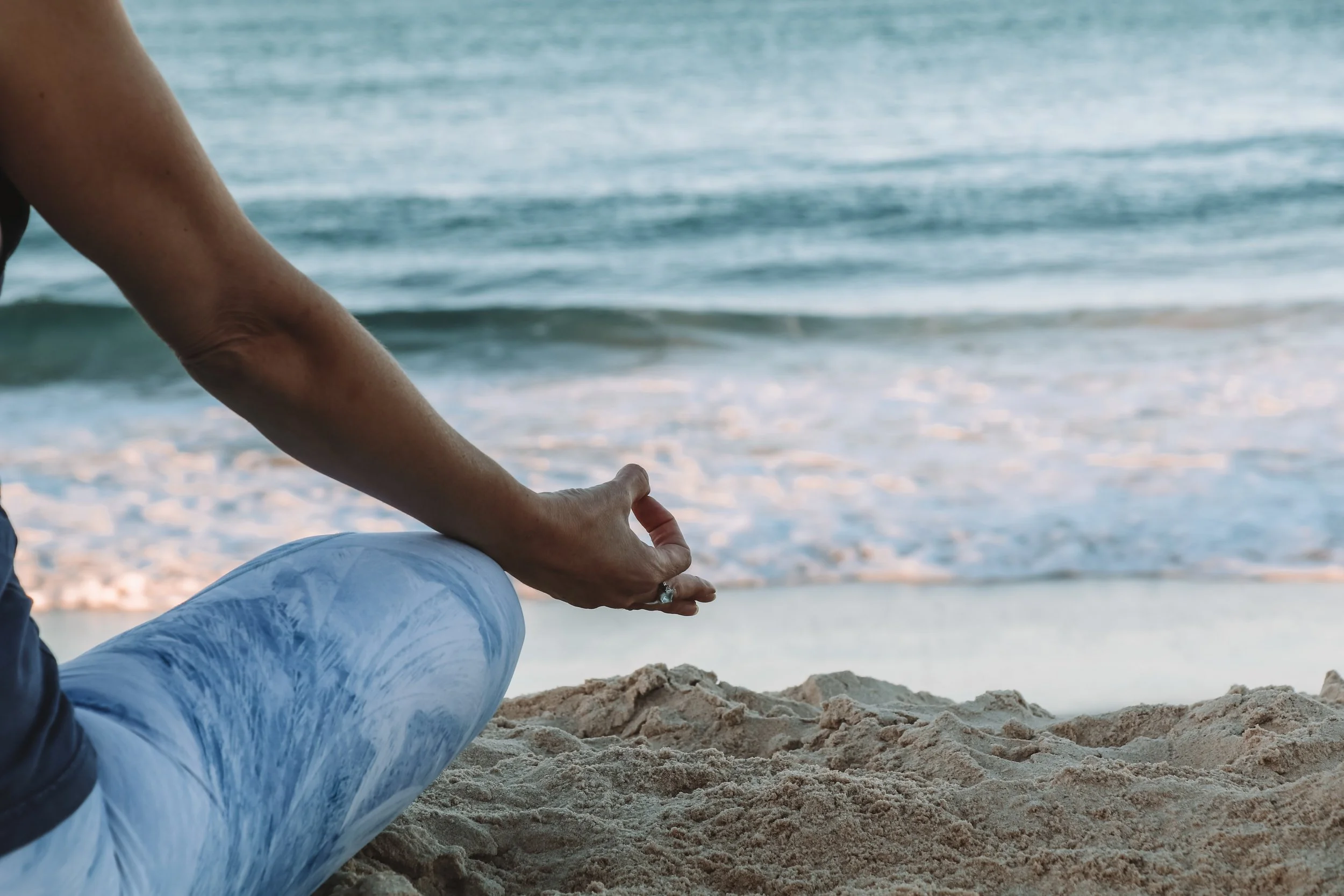Meditation
Meditation is a practice that involves training the mind to focus and be present in the moment, and is often used as a tool for mental and spiritual wellness. By focusing the mind, meditation can promote relaxation, reduce stress, increase self-awareness, and promote emotional regulation.
Choosing to embrace the transformative power of meditation is a profound step towards enhanced well-being.
With the Healers & Teachers app, you gain access to a wealth of resources, experienced practitioners, and a supportive community
Benefits of Meditation
Meditation has been shown to have a variety of benefits for mental and physical health. Here are just a few:
Stress reduction: Meditation can help reduce stress by calming the mind and promoting relaxation. Studies have shown that meditation can lower levels of cortisol, the stress hormone, in the body. This can lead to a reduction in anxiety, depression, and other stress-related disorders.
Improved focus and concentration: Regular meditation practice can help improve focus and concentration, making it easier to stay present and engaged in daily life.
Greater self-awareness: Meditation can help you become more aware of your thoughts, feelings, and behaviors, allowing you to make more conscious choices.
Better sleep: Regular meditation practice can help improve sleep by promoting relaxation and reducing stress.
Enhanced emotional well-being: Meditation can help regulate emotions and promote feelings of happiness and well-being. By focusing on the present moment, individuals can become more aware of their thoughts and feelings, allowing them to better manage their emotions and improve their relationships with others.
Healing and Pain management: Meditation can also be used as a tool for healing. Research has shown that meditation can help to reduce symptoms of chronic pain, improve immune function, and even lower blood pressure.
How does meditation work?
Meditation works by changing the way the brain processes information and responds to stress. When we experience stress or other negative emotions, the amygdala (a region of the brain responsible for emotional processing) can become overactive, leading to a heightened state of arousal and reactivity. Meditation can help to reduce this activity in the amygdala, promoting a sense of calm and relaxation.
Meditation also activates the prefrontal cortex, a region of the brain responsible for executive functions such as decision-making, attention, and self-control. Regular meditation practice can strengthen these neural connections, making it easier to regulate emotions, focus attention, and make healthy choices.
Additionally, meditation can stimulate the production of certain neurotransmitters, such as serotonin and dopamine, which are associated with positive emotions and feelings of well-being. This can lead to a reduction in symptoms of anxiety, depression, and other stress-related disorders.
Finally, meditation can help to cultivate a sense of mindfulness, or non-judgmental awareness of the present moment. This can help to reduce rumination (repetitive, negative thoughts) and increase self-awareness, leading to greater emotional regulation and overall well-being.
What are the different types of meditation practices?
There are many different types of meditation practices, each with its own unique focus and approach. The best type of meditation is the one that feels most comfortable and effective for each individual's unique needs and preferences. Here are a few meditation practices:
Mindfulness meditation: This practice involves focusing on the present moment and becoming more aware of your thoughts and feelings. It involves observing your thoughts without judgment and bringing your attention back to your breath whenever your mind wanders.
Loving-kindness meditation: This practice involves cultivating feelings of love, kindness, and compassion towards yourself and others. It often involves repeating phrases or visualizing positive experiences to generate feelings of goodwill.
Transcendental meditation: This practice involves repeating a mantra, word, or sound to help quiet the mind and achieve a state of deep relaxation. It is often practiced for 20 minutes twice a day.
Yoga meditation: This practice involves combining physical postures with breath awareness and meditation. It can help improve flexibility, strength, and balance while also promoting relaxation and stress reduction.
Body Scan Meditation: This type of meditation involves focusing on different parts of the body and releasing tension or discomfort in those areas. It can be a helpful tool for reducing stress and promoting relaxation.
Chakra meditation: This practice involves focusing on the seven chakras, or energy centers, in the body. It can help balance and align the chakras, leading to greater physical, emotional, and spiritual well-being.
Visualization Meditation: Visualization meditation involves imagining oneself in a peaceful or positive environment, such as a beach or forest. It can be a helpful tool for reducing stress and promoting relaxation.
Choosing a meditation practice
Choosing a meditation type can be a personal and subjective decision, and there is no single "right" way to meditate. Here are some factors to consider when choosing a meditation type:
Your goals: Different types of meditation can be more effective for different goals. For example, if you want to reduce stress and anxiety, mindfulness meditation or body scan meditation may be more helpful. If you want to cultivate more positive emotions, loving-kindness meditation may be more effective.
Your personality and preferences: Different types of meditation may resonate more with different personality types. For example, if you prefer structure and routine, Transcendental Meditation or Zen meditation may be more appealing. If you prefer more freedom and creativity, visualization meditation may be a better fit.
Your schedule: Some types of meditation may require more time or a specific environment, such as a quiet room or group setting. Consider your schedule and lifestyle when choosing a meditation type that is realistic and sustainable for you.
Your teacher or guide: If you plan to learn meditation from a teacher or guide, their expertise and approach may influence which type of meditation you choose.
Ultimately, the best way to choose a meditation type is to try different styles and see what works best for you. You may find that a combination of different types of meditation is most effective for achieving your goals and fitting into your lifestyle.
Getting started with meditation practice
Integrating the use of teacher led classes and events, alongside self-guided meditations in Healers and Teachers app can be a helpful way to support your learning and growth. Here are some tips for integrating these resources into your practice:
Set clear goals: Before starting a meditation practice, set clear goals for what you hope to achieve. This will help you to choose the most appropriate teacher and to stay motivated in your practice.
Use Healers and Teachers app to supplement your practice: Healers and Teachers app provides pre-recorded sessions that can be a helpful way to supplement your meditation practice, providing guided meditations, reminders, and progress tracking. Use them to experiment with different techniques and to find what works best for you.
Seek out a teacher near your location with Healers and Teachers app’s location aware discovery function for personalized instruction: A teacher or guide can offer personalized instruction and feedback, helping you to deepen your practice and address any challenges or questions that may arise.
Attend workshops or classes in Healers and Teachers app: In addition to one-on-one instruction, attending workshops or classes can provide a supportive community of fellow meditators and opportunities to learn from different teachers and styles.
Combine resources for optimal results: Experiment with combining different resources, such as using an app for daily practice and attending workshops or retreats for deeper immersion and instruction.
Remember, the key to a successful meditation practice is consistency and commitment. Integrating apps and teachers can be a helpful way to support your practice, but ultimately it is up to you to prioritize your practice and make it a regular part of your daily routine
Healing and Growth begins with you
Embarking on your meditation journey is a deeply enriching and empowering choice. Whether you seek calmness, clarity, or personal transformation, the Healers & Teachers app is your trusted partner for holistic well-being. Begin your transformative journey with Meditation today.
The Healers & Teachers app provides:
Expert meditation teachers: Connect with experienced meditation instructors who specialize in different techniques and approaches. Receive personalized guidance and tailored meditation practices to suit your specific needs and goals.
Comprehensive practices and programs: Explore a diverse range of meditation practices, including mindfulness, breathwork, visualization, and more. Discover programs for stress reduction, self-awareness, and personal growth, and access a variety of guided meditations for different purposes.
Thriving community: Engage with a vibrant community of like-minded individuals on a shared meditation journey. Connect, share experiences, seek advice, and learn from the collective wisdom and support of fellow meditators.











